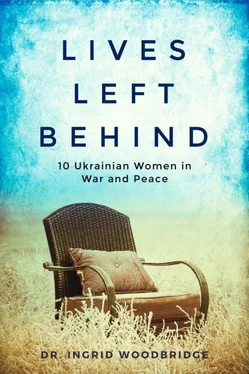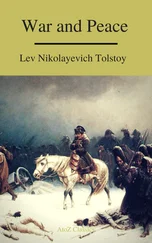Veronika’s brother and his bride had planned their wedding day long before the conflict broke out. Veronika and her family took the train to the Ivanov Frankivsk region to attend the celebration. But the ever-present question was what to do next. Was returning to Pervomaisk an option at this point? What was going on back home? Since they did not know if and when they could return to Pervomaisk, they chose to stay in Ivanov Frankivsk till further plans could be made, but with no job and no permanent place to live, this was not a long-term plan. Veronika’s father returned home to Pervomaisk after the wedding.
Veronika and Artur called friends in Rivne and asked if they could come stay with them. The friends told them that they were actually not in Rivne right now, but in a summer camp. But their friends connected Veronika’s family with another Christian family who gladly invited them for a short stay. Veronika, Artur, and little Benjamin took the train to Rivne, and stayed with that family for several days.
The family treated them very kindly and showed real interest in their lives. They asked them questions, provided for their needs, fed them, provided a place to sleep, and showed them sympathy for their situation. But their hosts also expected that Veronika and Artur would do as they were told in regard to their own faith practice, which meant head coverings, women wearing skirts, and attending the Pentecostal church. Artur really wanted to find work, but their hosts told him, “Why work? Just serve God.” This was the moment when Artur decided that they could not stay with this family very long. They really needed a place of their own, and renting an apartment became a driving desire for Veronika and Artur.
For the next few weeks, the family would live with different members of the church, one week here, two weeks there. Often, one room was made available for Veronika, Artur, and little Benjamin, while their hosts slept in another room. Artur still had not found work. Finances were very tight. Finally, Artur found work, but even with some income, life was difficult. The cost of living around Rivne was much higher than in the East of Ukraine. Their Baptist friends ended up staying at the summer camp for one more month and allowed Veronika’s family to move into their apartment and live there till their return. This family finally came back from summer camp and needed to use their own apartment again.
Artur needed to find an apartment for his small family, but try as he might, he couldn’t secure an apartment. No one would rent rooms to refugees, expecting them to leave again soon. Finally, with help from the Baptist church, they found a one-bedroom apartment, though it was in a horrible building in a bad neighborhood. Veronika remembered that the flat was empty, no beds, no wardrobe, nothing. They had no belongings, no furniture, just a couple of suitcases for the road. The believers from the church collected things for them and brought them a bed, a wardrobe, a refrigerator, pots and pans for the kitchen, dishes and cutlery. The church family gave generously and met their very basic needs. The believers also brought produce and food staples that they needed. Veronika said they really had nothing to live on themselves. At this point, the family had been on the road for two months already. God had provided for their needs through the family of God in the churches.
Once, a sister in the Baptist church invited Veronika to her home while Artur was at work. Veronika had been home alone, taking care of Benjamin. She gladly accepted the invitation to get to know someone. They had time to drink coffee and enjoy some fellowship. Veronika walked home with Benjamin to their small apartment, but when she arrived she was shocked to find there had been a robbery.
Someone had given Veronika and Artur a laptop and a backpack in which they stored their money and documents. When she opened the door upon returning home from her outing, she saw that the laptop and backpack, along with all their savings, their official documents and passports, were gone. It was too much to take. Who would steal from refugees on the run?
In reflection, Veronika wondered if she was being watched. The thieves must have paid careful attention to notice when she was not home. Several times before, the doorbell would ring, but no one was there. She found cigarette butts repeatedly on the kitchen floor. Her best guess was that her neighbors gained access into their apartment several times. Only the neighbors down the hall could disappear into their apartment quickly after using the doorbell. Their landlord did not want to deal with the situation.
Life was hard, Veronika remembered. Finances were tight, especially after the robbery. Artur’s brother came to visit from Moscow and brought them $200. The believers in the church took care of the family and met their needs. Different churches were ministering to them in various ways. One church had given Artur a job, the Baptist church provided their apartment furnishings, and other churches provided humanitarian aid. They lived four months in Rivne, then made plans to move to Poland. They were told that Arthur could find work in Poland during the summer months. They also had Ukrainian friends in Poland, who had emigrated. At this time, Veronika found out that she was expecting her second child. This was a big surprise. After thinking and praying, they decided to move to Poland in 2015.
Poland had opened some refugee camps. One option for Veronika and her family was to live in a summer camp made available for refugees from Ukraine. They didn’t need a visa for Poland, Veronika remembered, because they had official refugee status. A family from the Rivne church drove them to the border and left them there with all their belongings. They had quite a few bags and luggage pieces by now. Artur told the border guards that they were refugees. The border proceedings were long and tiresome for the refugees. It took eight or nine hours, Veronika recalled. They were also moved around between two different border crossings. They had to answer many questions and had to explain where they were going. Finally, they were granted entrance into Poland.
The information they had previously received was that once in Poland, transportation to the summer camps would be provided for refugees. They had been instructed that when they passed through the border, they were to travel immediately to the summer camp. But by now, it was late afternoon. Veronika was already four months pregnant; it had been a long and draining day. Little Benjamin also had had enough. Because of the long delay in crossing the border, no transportation to the summer camps was available. Veronika, emotionally drained, felt abandoned. They couldn’t go back to the Ukrainian side of the border, because their Ukrainian friends had left, returning to Rivne. On the Polish side, however, they had no way to get where they were going. She melted into a pool of tears.
The Polish border guards told them that there was a bus going to Lublin from the bus terminal. So, Veronika and her small family had to take a taxi from the border to the bus terminal, then scout out the right bus and find room for all their belongings on a bus meant to transport only passengers. They made it to Lublin at dusk. They hoped for the next connection, whether bus or train. They called some friends, asking for help to figure out transportation to the camp. When they learned that no more trains or buses were going to their destination that day, Veronika broke down in tears. She remembered that they stood on the street, surrounded by their luggage. Benjamin was crying; they were all exhausted. She was at the end of her rope.
But God’s family came to the rescue again. Artur called one Christian sister who had immigrated from Pervomaisk to Warsaw. This lady called her friend in Lublin, and this friend called another friend; eventually a Polish Catholic family arrived at the Lublin bus terminal to collect Veronika and her family. They had to make two trips from the train station to the apartment to transport all the luggage because they had a small car. This hospitable family did not speak Ukrainian or Russian, and Veronika’s family did not speak Polish. Their hosts bought them train tickets and took them to the train station the next morning. And finally, they arrived at the summer camp for refugees.
Читать дальше












